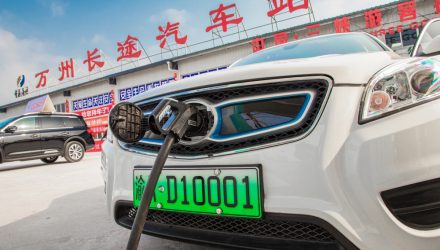Electric vehicle sales in China continue to rocket upward, as the demand grows for the emission-friendly automobiles. The China Association of Automobile Manufacturers (CAAM) recently reported record electric vehicle (EV) sales for the month of June.
That could benefit the KraneShares Electric Vehicles and Future Mobility ETF (NYSE: KARS), which holds roughly 15% of its portfolio in Chinese automakers such as Nio (NIO) (6% of its portfolio).
China’s EV Growth by the Numbers
June saw the sales of 256,000 EVs in China, a year-over-year increase of 139% according to CAAM. Year-to-date sales are up 120% for 2021, which is a 201% increase over the same time period of 2020.
On the production side, China produced 248,000 new energy vehicles in June, a 134.9% increase year-over-year, despite semiconductor shortages globally.
Consumer vehicles saw 153% growth year-over-year, a trend that is expected to continue. CAAM anticipates reaching 2.4 million EV units sold in 2021, an increase of 76% over 2020. Compared to the estimated 6.7% growth anticipated in regular automobiles for 2021, EVs continue to outperform in both trajectory and growth.
Harnessing EV Growth with KARS
According to the KraneShares website, the global electric vehicle market is estimated to grow to $2.7 trillion by 2040, a trend that is being clearly seen in mainland China.
KARS measures the performance of the Bloomberg Electric Vehicles Index, which tracks the industry holistically, including exposure to electric vehicle manufacturers, electric vehicle components, batteries, hydrogen fuel cells, and the raw materials utilized in the synthesis of producing parts for electric vehicles.
The index has strict qualification criteria: companies must be part of the Bloomberg World Equity Aggregate Index, have a minimum free float market cap of $500 million, and have a 90-day average daily traded value of $5 million.
KARS allocates 39% of its portfolio to consumer discretionary stocks, 20.99% to industrials, 20% to materials, and 19.98% to information technology.
The ETF has an expense ratio of 0.72%.
See also: ‘KARS’ Gets a New Bloomberg Index
For more news, information, and strategy, visit the China Insights Channel.

